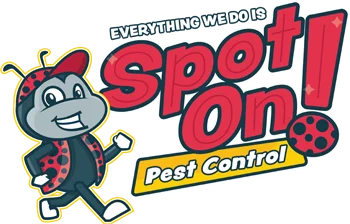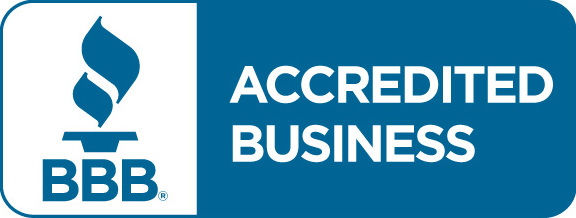Living in Trinity, TX, brings the beauty of nature right to your doorstep, but it also presents challenges, like the presence of wasps around your home. As temperatures rise, wasp activity increases, leading to the construction of nests in less-than-ideal places, including near entryways, gardens, or even inside garages. Understanding wasp behavior is fundamental to effectively managing their presence and ensuring the safety of your home and family.
Wasps are territorial creatures, and their nests serve as a base for foraging and as a protective hub for their young. It’s crucial to identify the type of wasp and locate their nesting sites to implement the most effective removal and control strategies. At our company, we prioritize a thorough inspection process that enables us to tailor our approach to the specific wasp species and the challenges they pose.
Understanding Wasp Behavior and Their Nests in Trinity, TX
Wasp behavior can be unpredictable and often aggressive, which poses unique challenges for residents in Trinity, TX. Wasps, unlike bees, can sting multiple times, making them particularly hazardous around homes, especially where children or those with allergies may be present. Understanding the behavior and nesting habits of wasps is essential for effective management.
Wasps typically start building their nests in spring when the queen emerges from hibernation. They prefer sheltered spots such as eaves, ceiling voids, and tree branches. Their nests are made of a paper-like substance produced by chewing wood mixed with saliva. Recognizing these signs early can help in preventing larger infestations. For residents of Trinity, TX, it’s beneficial to inspect your home regularly during spring to detect early signs of nesting activity.
Key Safety Measures Before Attempting Wasp Nest Removal
Before attempting to remove a wasp nest, it’s crucial to prioritize safety to prevent harmful stings or allergic reactions. Here are key safety measures that we recommend:
- Wear Protective Clothing: Always wear long sleeves, pants, gloves, and a hat. Covering the face with a veil or mask can protect against accidental stings to sensitive areas.
- Avoid Perfumes and Strong Scents: Wasps are often attracted to strong scents. Avoid wearing perfumes or colognes, and ensure that food sources are secured so as not to attract wasps during the removal process.
- Do Not Disturb the Nest During Peak Hours: Wasps are most active during the day. Plan any removal attempts for dusk or dawn when wasps are less active, which will minimize your chances of being stung.
- Have an Escape Plan: Always plan an escape route in case the wasps begin to swarm. It is important to calmly and quickly move away from the area if the wasps become aggressive.
Taking these precautions can help minimize the risks associated with wasp nest removal. For homeowners in Trinity, TX, understanding these safety measures is fundamental before deciding whether to proceed on your own or call in our professional technicians, who are equipped with the right tools and expertise to handle wasp removal safely and efficiently.
Professional Wasp Nest Removal Techniques by Our Technicians
Removing wasp nests is not just a matter of knocking down a hive. It requires a strategic approach to ensure complete elimination without endangering the property or people around. When we are called to manage a wasp nest in Trinity, TX, our technicians come equipped with specialized tools and protective gear designed for safe and effective removal. We begin by assessing the location and size of the nest, which helps determine the most appropriate method for removal.
For aerial nests, our team uses extendable poles fitted with a specialized chemical injector to treat the nest from a safe distance. This method allows our technicians to apply an insecticidal dust directly into the nest, effectively reaching the core where the wasps are most concentrated. For nests that are within walls or underground, we use insecticide sprays that are designed to penetrate these hard-to-reach areas. Only after ensuring all the wasps are neutralized do we physically remove the nest. This cautious approach minimizes the risk of wasp aggression, protecting both our team and the residents of the property.
Preventive Strategies to Discourage Wasp Nesting Near Your Home
Prevention is key when it comes to managing wasp populations and avoiding future infestations. After the removal of a wasp nest, implementing preventive measures can significantly reduce the chances of another infestation. We advise homeowners in Trinity, TX, on several techniques to discourage wasps from nesting near their homes.
Firstly, securing potential entry points is crucial. We recommend sealing cracks and crevices in exterior walls, around roofing, and near windows to prevent wasps from entering and establishing nests. Removing sources of food is also effective. Covering trash bins and keeping outdoor eating areas clean deny wasps the food sources they are often attracted to. Additionally, wasps are discouraged by certain natural deterrents; planting spearmint, thyme, or eucalyptus around your home can serve as a natural repellent. Regular inspections during the spring and early summer can also help detect early signs of wasp activity, enabling quicker intervention before a full nest is established.
Conclusion
Managing wasp infestations requires more than just reactionary measures. At our company, we emphasize a comprehensive approach that includes safe removal techniques, thorough risk assessments, and effective preventive strategies tailored to the conditions of Trinity, TX. It’s important for homeowners to stay vigilant and seek professional help at the first sign of wasp activity. Ignoring or mishandling wasp nests not only endangers your family but can also lead to more severe infestations.
For professional, effective, and safe wasp nest removal in Trinity, TX, rely on Spot On Pest Control, LLC to take care of the problem. With our experienced technicians, modern tools, and commitment to safety, we ensure a wasp-free environment for you and your family. Contact us today to schedule a consultation or to learn more about our pest management services that protect your home throughout the year.



